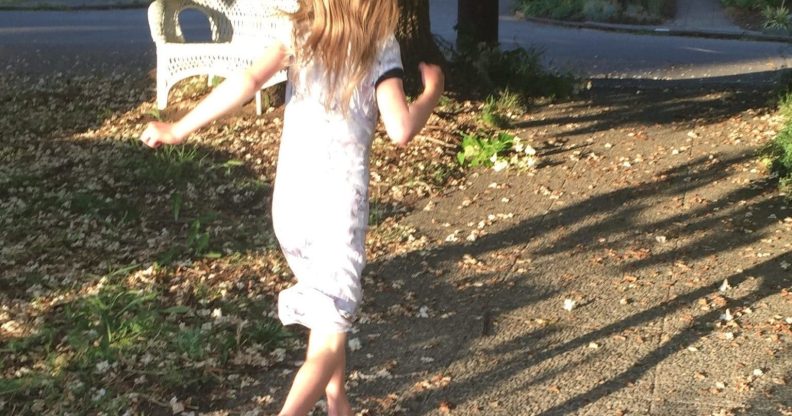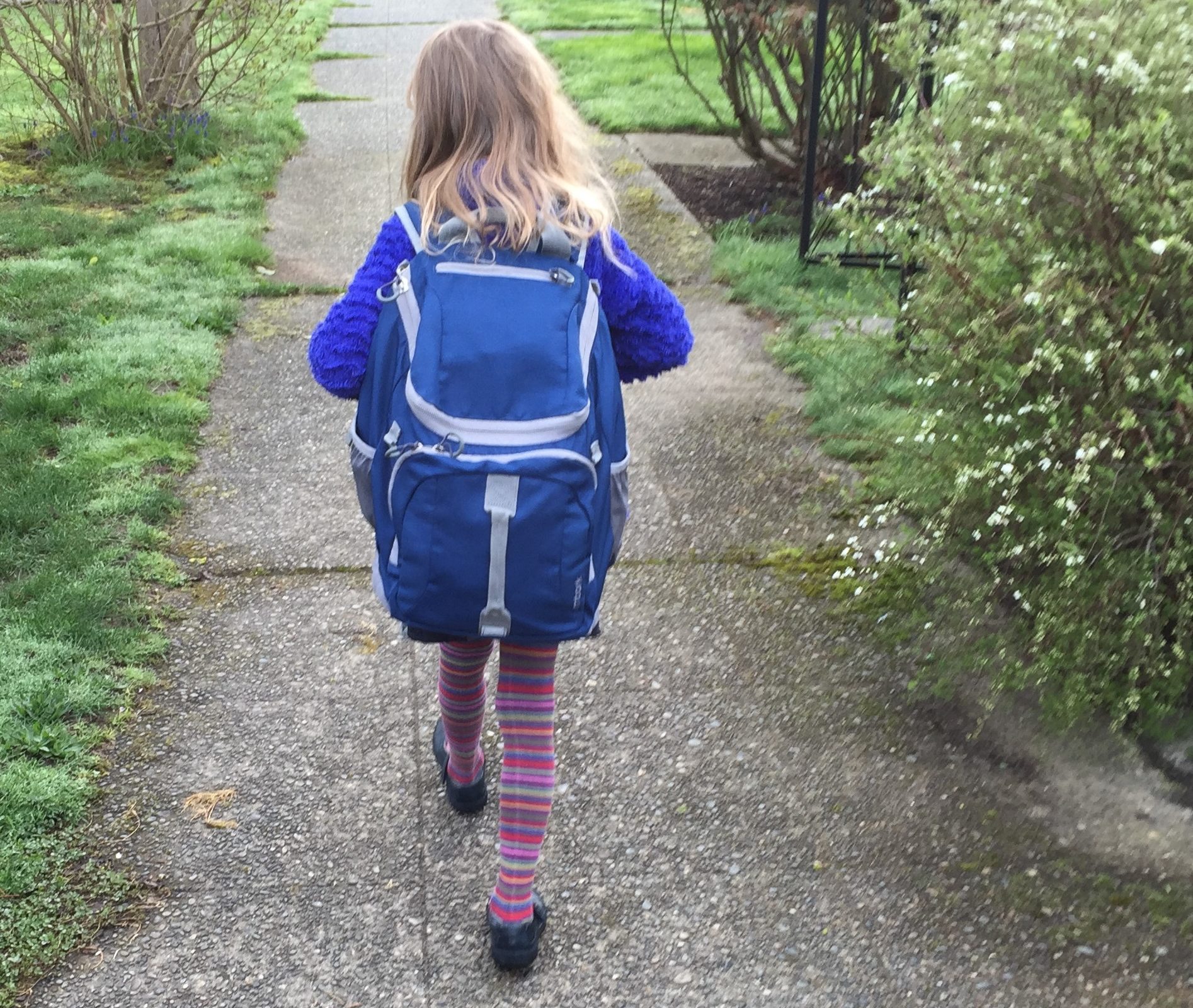My trans kid experienced a joyful, anxiety-free girlhood – all thanks to puberty blockers

Marlo’s daughter started taking puberty blockers in December 2020. (Marlo Mack)
Seattle-based Marlo Mack is the producer of the award-winning podcast How to Be a Girl and author of an audio book of the same name. Weeks before a 2020 court ruling against puberty blockers sent shockwaves around the world, Marlo’s trans kid began taking them.
On Tuesday (12 March 2024), NHS England confirmed the medicine, which has been described as “life-saving” medical care for trans youth, will no longer be prescribed in gender identity clinics, and will only be available to young people as part of clinical research trials.
This is Marlo Mack’s family’s experience with the life-saving medical intervention.
Marlo’s puberty blockers story
I have known this day was coming for nearly 10 years, ever since my three-year-old child first began to tell me that “he” was actually a girl. My child has been anticipating it, too, for all these years, asking me again and again: “When do I get the medicine to make sure I don’t become a boy, mama?”
And for years, my answer was, “Not for a long time, sweetheart. Not until you’re much older.”
Of course, the years spun by. She turned 11, then 12. Her cisgender friends started to get curvy and their moms began telling me in whispered asides that their daughters were getting their periods.
At the same time, the mothers of my daughter’s transgender friends began telling me that their kids were entering puberty, too. One by one, they announced, the time had come for their kids to undergo their own special version of puberty, our transgender tweens’ rite of passage into early adulthood: Blockers.
Trans tweens’ rite of passage into early adulthood: Blockers
“Blockers” is the layperson’s term for the medications – delivered either via injections or a small implant embedded in the upper arm – that pause natal puberty, meaning that my daughter will not undergo the masculinising changes she finds both abhorrent and terrifying.
Blockers have been used for decades on children who experience precocious puberty (eight-year-old boys who start growing beards, for example) and are entirely reversible (stop the blocker medication and a person’s natal puberty will start right back up). Blockers provide a calming breathing space for young people who find themselves on the cusp of a puberty that feels all wrong.
Blockers provide a calming breathing space for young people who find themselves on the cusp of a puberty that feels all wrong.
And, yes, blockers represent the first in a series of possible lifelong medical interventions for my child. And, yes, I take this extremely seriously. But for me, there has never been another choice (particularly when I learned that blockers might even keep my child alive).
While many transgender kids do not emerge until the early teen years or later, for parents like me, the “decision” about blockers was made long ago, when our young children – age four, five, or six-years-old – cried themselves to sleep at the thought of growing up to look like mom when they knew they should look like dad, or vice versa. And so we promised our terrified young children that it would be OK. We comforted them with the knowledge that modern medicine could prevent this, because it can.
That comforting knowledge has allowed my child to experience a joyful, remarkably typical girlhood, and one that has been largely anxiety-free. And her dad and I have benefited from the comforting knowledge that our family has the rare privilege of access to high-quality, trans-friendly medical care.
Though this moment has long seemed inevitable, it also always seemed far off.
Though this moment has long seemed inevitable, it also always seemed far off, a long way down our path. I suppose it’s often like that, for us parents: We’re never quite prepared for how fast our kids will grow up. I know I wasn’t. I got a little reprieve, because my child turned out to be a bit of a late bloomer: As her trans pals began, one by one, getting their blocker implants at age 10, 11, and 12, our paediatrician kept saying it wasn’t yet time, and so it seemed like my daughter was still going to be my little girl for a while longer.
But of course, one day she was going to grow up. A few weeks after regular life was shut down by the pandemic, I sat next to my daughter on the living room couch and was suddenly walloped with the knowledge that that day had come. There was nothing specific I could point to; it was a gut feeling. She was just… different. She was taking up a different kind of space in the room. My little girl no longer seemed little. I emailed her doctor right away. A blood test confirmed my maternal hunch: It was time.

The last several months have been a rough ride. First, we were told that COVID-19 restrictions meant that all “elective” medical procedures were on hold until further notice. I began to panic: Would the pandemic mean that my daughter wouldn’t get the medical care I had been promising her for a decade? After a nail-biting summer, we got the good news: We might need to wait a little longer, but her doctors would make it happen.
Everything came together in December, when my daughter – who is just shy of 13 – had a tiny cylinder (imagine a third of a toothpick) inserted under the skin in her left arm. For the next two-three years, it will secrete a medication that will prevent male puberty from occurring. When her doctor says it’s time, she’ll start taking oestrogen and she will begin to resemble her increasingly curvy peers. Which is, of course, exactly what she wants.
When her doctor says it’s time, she’ll start taking oestrogen.
The morning of her scheduled procedure to insert the implant, I asked her how she felt. “Nervous and excited,” she said.
She explained that she was nervous because she’d be getting a shot to numb her arm. She hates needles.
“And why are you excited?” I asked.
“I’m excited to be growing up,” she said.
“I’m excited to be growing up.”
And her mother is:
Relieved that my child is happy and safe.
Grateful beyond belief for this miraculous (and life-saving) medical care.
Full of that bittersweet feeling that occurs when something wonderful ends (childhood) and something equally wonderful begins.
This article was originally published in 2021 and updated in March 2024.

